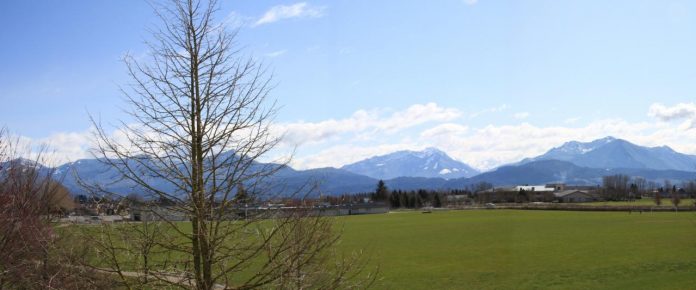People from outside of Vancouver seem to have the impression that the city is a crime-ridden hellhole. Having lived there for most of my life, I never got that impression. As a matter of fact, I have often felt less safe in the two small towns I’ve also lived in: Port Hardy, on northern Vancouver Island, and Chilliwack.
In Port Hardy, my fear was equitable: getting mauled by a bear or a cougar while on my way to or from work. Having your morning commute interrupted by a bear rummaging through a dumpster (this actually happened) will create that impression. At times, Port Hardy felt a bit off, like there was some kind of vast conspiracy going on and everybody except me and my family was in on it. Yet even though Port Hardy never truly felt like home to me, I didn’t feel any more threatened or unwelcome than I did in my native Vancouver. I lived there for a total of three years, and in that time, I gained a fair number of friends and positive experiences.
Chilliwack on the other hand, is something else entirely. I’ve lived here for about a year and a half now, but so far, the only locals I can claim to know with any familiarity are the cashiers at the corner store down the block. The reason for this is that getting around Chilliwack without a car is a nightmare. Between a lack of pedestrian walkways and a shoddy public transportation system, even walking a few blocks down the street is exhausting, more emotionally than physically. This is in stark contrast to my experiences in both Vancouver and Port Hardy. In Port Hardy, I used to walk all the way from one end of town to the other, up a hill one way, but I didn’t mind it most of the time. In Vancouver, I used to walk eight blocks down, then eight back up, one way through dense city, the other through suburbs, and likewise, this didn’t bother me much. In Chilliwack, I wouldn’t dare walk even half the distance I would in Vancouver or Port Hardy, unless I had no other choice.
The difference is more than just the nuts and bolts of the place. Port Hardy also lacks sidewalks in many areas, and public transit is all but non-existent, but I never felt excluded by city planners, or in constant danger of being run over the way I do in Chilliwack. Both the Carnegie Branch library in Vancouver’s notorious Downtown Eastside and the FVRL branch in downtown Chilliwack have the same number of security guards. The reason for this is that in the Downtown Eastside there is a high potential for people to make a scene, or attack someone, but based on my experiences in Chilliwack, there is more chance of it actually happening here.
The difference between Chilliwack and the other places I’ve lived appears to be what I call community spirit. All of those places have their social ills, but the people of Vancouver and Port Hardy take these things in stride, and do not obsess over them. There is also an implicit sense of trust between citizens, a sense that they would come to your aid if you really needed it, and this was actually stated to me once by a co-worker in Port Hardy. In Chilliwack, by contrast, it feels as if worry over the community’s problems has consumed its citizenry. Instead of safety, trust, and calm, in Chilliwack I get a sense of fear, paranoia, and selfishness. To be fair, this may not be entirely Chilliwack’s fault. The city has to cope with both urban and rural social maladies, with fewer resources at its disposal, and with fewer redeeming features like amenities to make up for it. There is only so much stress and bad experience that a community can endure before social cohesion begins to break down.
Now, what does this mean for UFV, which serves this community, among others? Does UFV have community spirit? Some people here worry that UFV’s sense of community is lacking, but there is good news on that front. UFV may not be a close-knit society, but what it does have is positive community spirit. When I walk the halls and pathways of UFV’s campuses, I get that same sense of tranquility I got when I walked the streets of my old hometowns. This is a solid foundation to build on. Even so, we are right to be concerned at times, because I have seen the consequences of what happens when community spirit is missing, and it isn’t pretty.
Based on my observations, there are some things that we can do to bolster UFV’s sense of community. For starters, events and amenities are important. Community members can bond through shared experiences and entertainment. Give them something to do instead of going straight to business and straight home again afterwards. Second, do not underestimate the importance of aesthetically-pleasing surroundings. We have lovely-looking campus grounds and interiors; let’s keep them that way, and perhaps some more public art, as others have suggested, wouldn’t go amiss. Finally, always be polite, be welcoming, and most importantly, always be willing to help a fellow community member in need. These may sound simple and obvious, but they are things that anyone can help out with, and it is important that we all do our part to help build a community based on trust, safety, and well-being.


